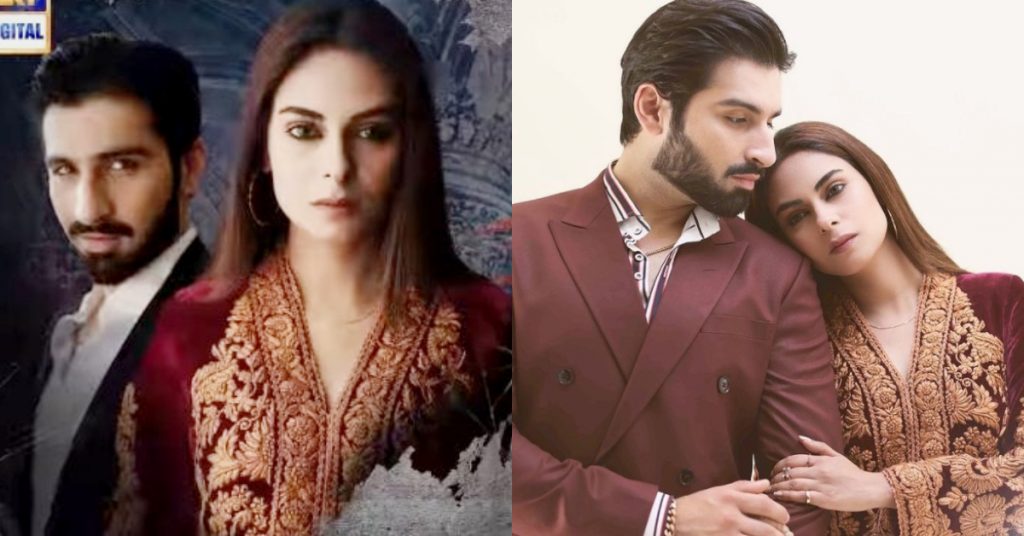“Baddua” stars Amar Khan, Muneeb Butt, Maryam Noor, Osama Tahir and Salma Hassan in prominent roles. This drama started off with intrigue, telling the story of a self-obsessed young woman who hopped from relationship to relationship in search of the “perfect fit,” a man who would fulfill her material and emotional desires. However, as the story progressed, it became evident that only one gender would be blamed for all the atrocities committed in this show – conveniently forgetting all the atrocities committed on the female lead by men. Written by Sameena Aijaz and directed by Ramish Rizvi, the story leaves a bad taste in the mouth on one major issue – the “baddua” itself.
This “baddua” (a prayer of condemnation) came from Mohsin’s (Mohsin Abbas Haider) mother after Mohsin, insulted by Abeer (Amar Khan), commits suicide. Instead of making this a story about mental health and the instability of Mohsin’s nature, his mother (Salma Hassan) – and the writer – placed all blame for Mohsin’s suicide on Abeer’s rejection. Suicide is not a topic one can tread lightly and this is a real mental health discussion, not another way to blame a woman – especially considering she wasn’t egging him on. She certainly betrayed him, but again, this does not equate to taking someone’s life. Later, when Abeer betrays Neelam (Maryam Noor) and “steals” Neelam’s fiancé Junaid (Muneeb Butt), again, the blame is placed on Abeer. Why is another woman’s fiancé so interested in his fiancee’s friend? Junaid himself is a thorough narcissist and a cheat, not only engaged to Neelam and dating Abeer, but also stringing Annie (Maryam Ansari) along.
In the finale, we see Junaid suffer great financial loss after Annie convinces him to transfer all his business shares and property in her name – and Junaid is suddenly so gullible that he does it. Annie then sells it all and leaves the country with her family. Junaid’s punishment for all the women he has betrayed is financial loss while Abeer’s is much more severe. After daring to want to work and, later, her mother finding a video with which Abeer is being blackmailed, her mother throws her out onto the streets. Abeer walks into the street, is run over by a car, loses movement of her legs and is forced to beg for money. This is the result of the “baddua.” The final scene sees Neelam and Affan (Osama Tahir) leaving the hospital with their baby while Mohsin’s mother gives Abeer money.
The greater conversation that needs to be had here is how Abeer’s persona is (realistically) created by her toxic family. An overbearing father full of restrictions and an untrusting attitude, Abeer’s father has always expected his daughter to bow her head and accept his every decision. Falak, on the other hand, is presented as the “perfect” daughter for listening to all of his demands without batting an eyelash. Abeer’s mother initially covered for all of Abeer’s actions, later regretting her behavior. Someone please stop to explain how this horribly unsupportive, unloving family wound up being portrayed as “good people” while their daughter was thrown into the streets for being the result of their upbringing?
Overall, there is little to take away from “Baddua” that is positive. Abeer was never a good person, but that did not make her a criminal. In what world would she deserve this sort of “karma”? Can we, as an audience, stop watching such shows and can writers stop putting forth these “message-based” shows? These messages are putting out a harmful notion that liberal, headstrong women will meet a horrible end. In reality, a manipulative woman like Abeer would have found a new man to latch on to after being kicked out until she found a job. Even “bad” women can take care of themselves – begging, being burned in car crashes or getting AIDs does not have to be the end of every story with a dubious female lead.
